The Canon EOS R3 was teased in a 'development announcement' back in April, when the camera giant described it as a professional full-frame camera that sits in between the Canon EOS R5 and Canon EOS 1D X Mark III.
But since then, it's all gone a bit quiet on the EOS R3 front – officially, at least. Fortunately, rumors from historically reliable sources have started to fill in some of the gaps, including its expected full release date.
What we do know for sure is that the Canon EOS R3 will be built around the combination of a full-frame, back-illuminated, stacked CMOS sensor and Digic X processor.
Together, these will give it Sony A1-rivaling shooting speeds of 30fps when you use the electronic shutter, although we're waiting for more specific details on the conditions that'll be needed for the EOS R3 to hit these speeds (for example, lenses and file formats).
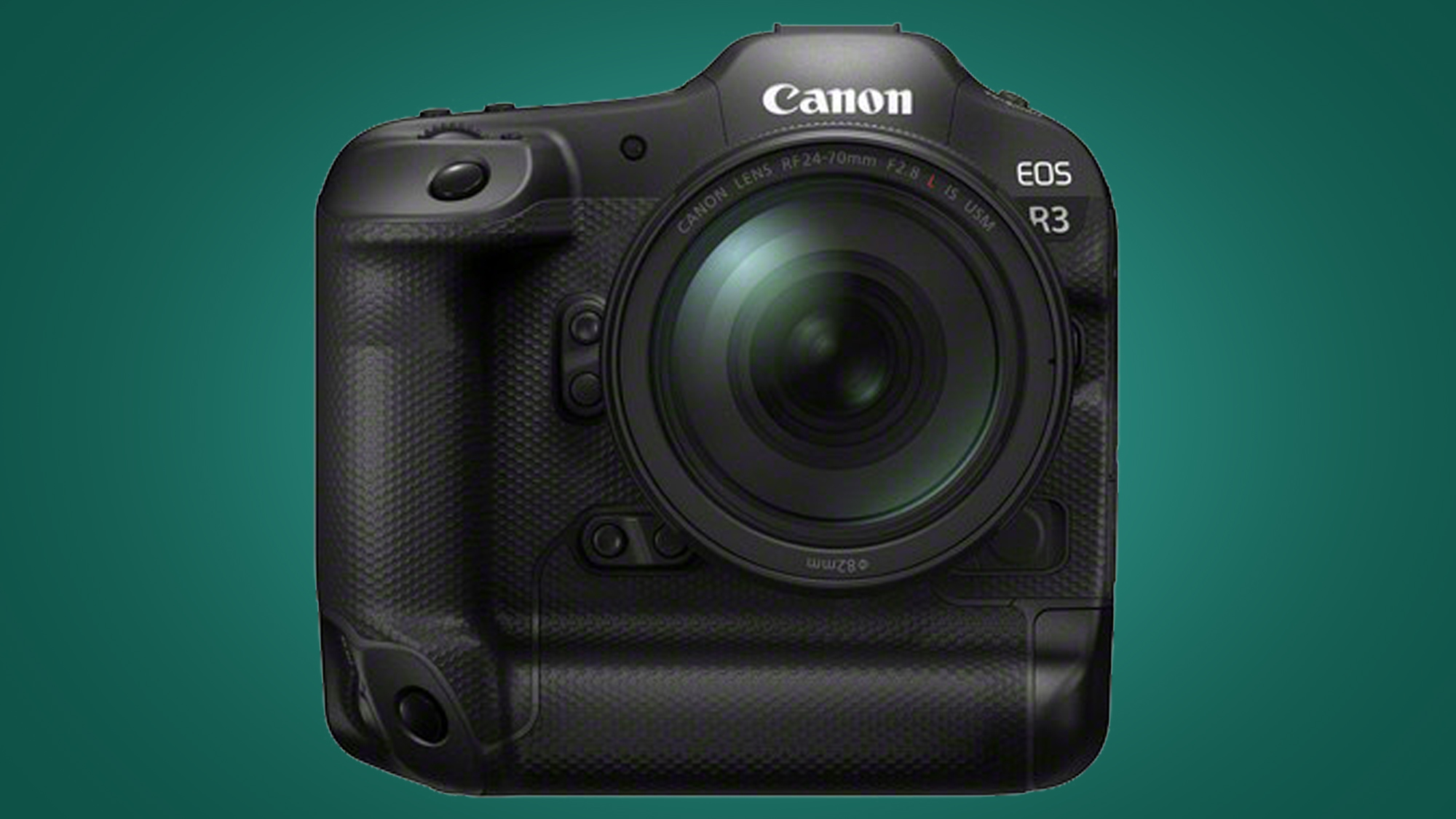
Intriguingly, the EOS R3 will also have a new Eye Control AF function. Like a similar feature we saw back in the 90s on Canon EOS 5 and EOS 3 film cameras, this promises to let you choose an autofocus point simply by looking at it in the viewfinder. It was a bit hit-and-miss back in the day, but we're looking forward to trying out the new incarnation on the EOS R3.
Exactly when we'll be able to do that, though, isn't clear. Canon hasn't yet given the camera an official release date, so while we may see a few in the hands of professional snappers at the Tokyo Olympics, the R3 likely won't reach our hands until later in the year. The latest rumors suggest a full launch in September.
Until then, rumors will no doubt fill in the big gaps in the Canon EOS R3's blueprint, so we've rounded up the most credible ones – plus the camera's official specs and our thoughts on what it means for pro full-frame camera battle – in this in-depth guide to Canon's exciting mirrorless camera.
- These are the best mirrorless cameras you can buy right now
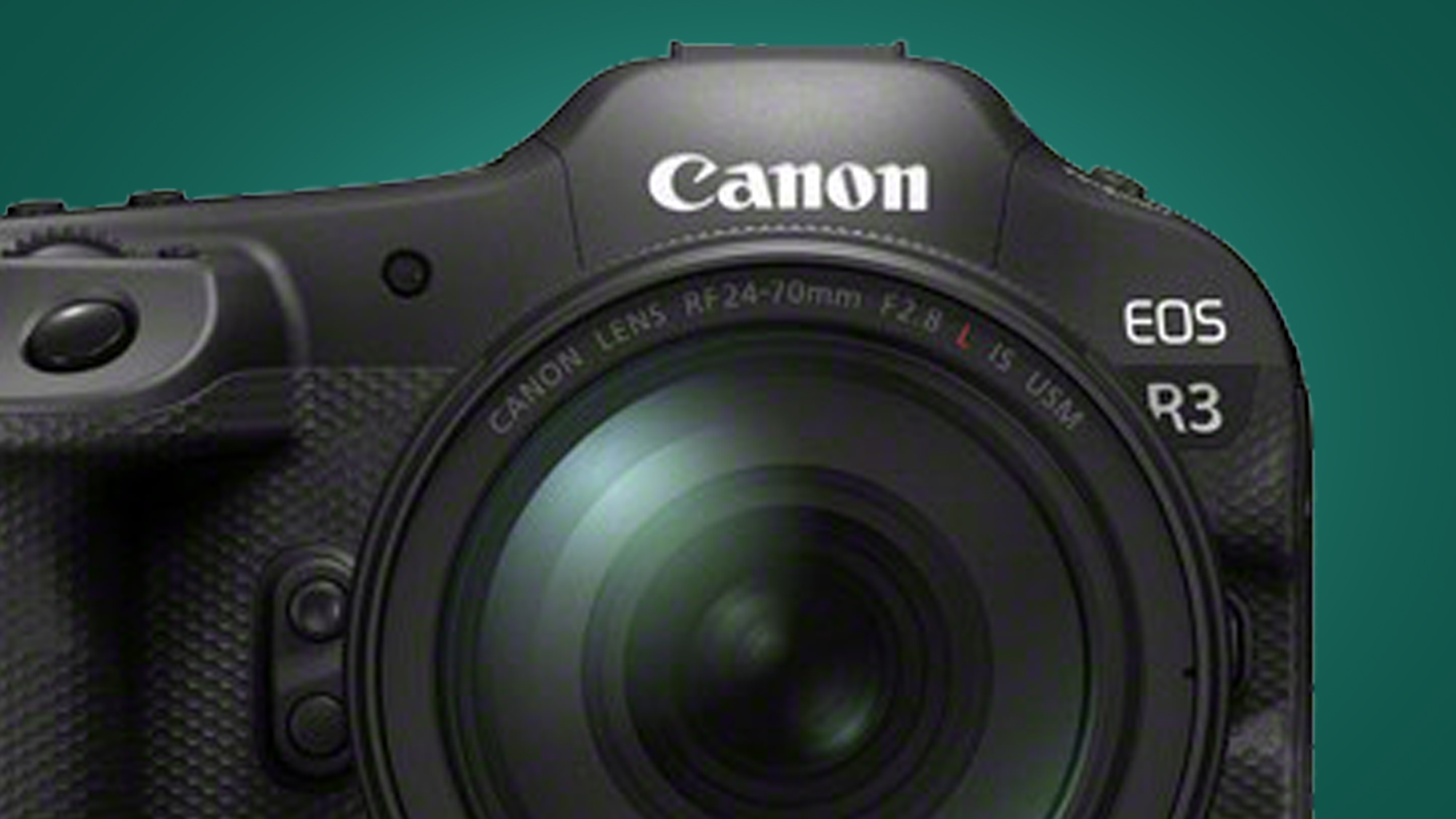
Cut to the chase
- What is it? A flagship full-frame mirrorless camera for pro sports photographers.
- When can I buy it? Canon has only made a 'development announcement' for the EOS R3, but the rumors suggest a full launch in September.
- What features does it have? Confirmed features for the EOS R3 are that it will have a Canon-developed stacked BSI (backside-illuminated) sensor, 30fps burst shooting with the electronic shutter, an updated version of Dual Pixel CMOS AF, a weather-resistant body, and the ability to let you move autofocus points with your eye through the viewfinder. We don't yet know its sensor's resolution, or its price tag.
Canon EOS R3 release date and price
- No official release date or pricing yet
- Rumors suggest a full launch in September
- Price expected to be nearer EOS 1D X Mark III than EOS R5
So far, Canon has only made a 'development announcement' for the Canon EOS R3, which doesn't contain any official details on a release date.
There are a couple of things pointing to a September release, though. Firstly, some apparently reliable sources have told Canon Rumors that the EOS R3 "will be announced in September 2021".
This also fits the timescale we saw for the Canon EOS R5. That camera received a development announcement in February 2020, before becoming available to buy in July 2020. That was a five-month wait, if the EOS R3 follows a similar schedule then it should arrive in September (five months after its April development announcement).
That said, we have seen many delays for camera and lens launches this year due to semiconductor and component shortages, so it's certainly possible that September launch could be pushed back. Even if it is likely that we'll see a few Canon EOS R3's used in the wild during the Tokyo Olympics, which are due to start on July 23.
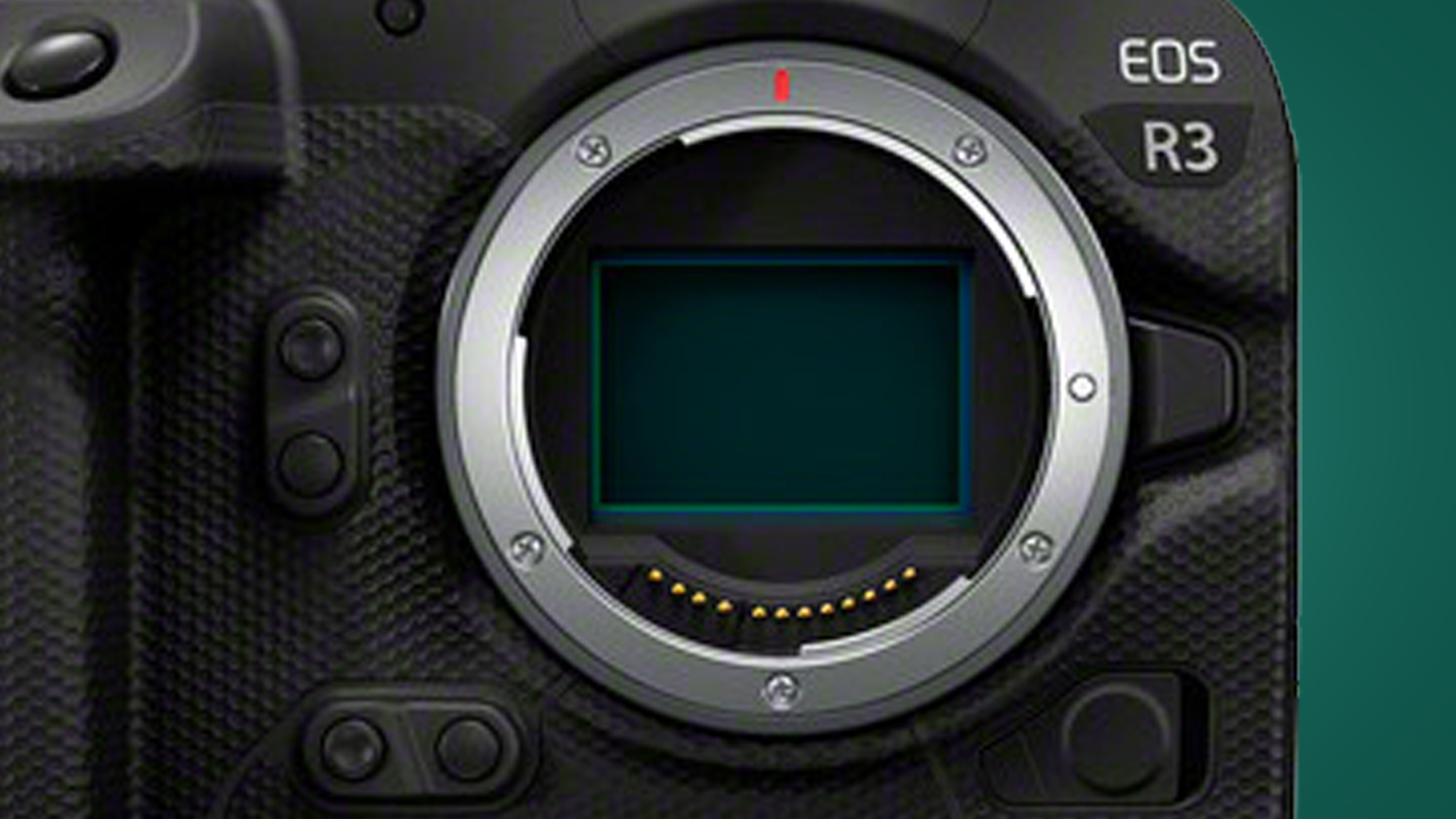
How much will the EOS R3 cost? Again, Canon hasn't yet given any official indication. What the camera giant has said, though, is that the Canon EOS R3 sits somewhere in between the Canon EOS 1D X Mark III and the Canon EOS R5, so we can make some educated guesses as to the price based on those two cameras.
The 1D X Mark III's body-only launch price in January 2020 was $6,499 / £6,499 / AU$9,999, while the EOS R5 arrived more recently, in July 2020, for $3,899 / £4,199 / AU$6,899.
Given that the EOS R3 in many ways combines the best of both cameras, and has a brand-new sensor, we'd expect it to be closer in price to the former of those two cameras. But we'll have to wait for the full announcement to know for sure.
Canon EOS R3 specs and features
- Has a new Canon-developed stacked BSI CMOS sensor
- Sensor rumored to be 45MP and capable of 8K/30p video
- New Eye Control Function for moving AF points with your eye
Canon has revealed some of the EOS R3's key features, but a lot remains unknown. In music festival terms, we know a couple of the headliners, but a lot of the lineup is filled with question marks.
Some recent rumors have started to color in Canon's basic line drawing, but let's start with the five big, confirmed acts. Firstly, the EOS R3 will have a new Canon-developed stacked BSI (backside-illuminated) CMOS sensor. This is interesting for a couple of reasons. It's been made by Canon, for a start, so should integrate nicely with the camera's Digic X processor.

New Canon-made MSI stacked CMOS sensor
Digic X image processor
30fps burst shooting with AF/AE tracking
Eye Control Function (for eye-controlled AF)
Dual Pixel CMOS AF
1D-series weather resistance
But the big news is that this full-frame sensor will have a 'stacked' design, like the chip seen in the Sony A1, and the one Nikon has promised for its incoming sports flagship, the Nikon Z9. The benefits of stacked sensors are their speedy data read-out speeds, which generally means fast burst shooting and autofocus speeds.
What we don't yet know is what resolution the EOS R3's sensor will be. A recent post from Canon Watch, though, suggests it's likely to be a 45MP camera that can shoot 8K/30p raw video.
While this is unconfirmed, it does seem like a potentially realistic resolution for the EOS R3. After all, the Sony A1 is a 50MP camera that can also shoot stills at 30fps.
Traditionally, sports cameras like the Canon EOS 1D X Mark III have been closer to the 20MP mark, because that allowed them to reach the necessary burst speeds, so it does seem a little on the high side given current pro sports cameras. But then again, the R3 will likely be a showcase of what's possible with the latest stacked sensors and processors.

Perhaps more interesting are the Canon EOS R3's autofocus powers. Canon has promised that the camera will have 'next-generation' Dual Pixel CMOS AF that can track your subjects' eyes, heads and bodies at high speeds.
Which brings us to another recent rumor. Both Canon Rumors and Canon Watch have speculated that this means the EOS R3 will have the long-awaited Quad Pixel AF system, which has been rumored for over two years.
This one's a little up in the air, as it depends on the interpretation of 'next-generation' Dual Pixel CMOS AF. It may be that Canon is simply holding back the announcement of Quad Pixel AF for a later EOS R3 announcement – or the rumor sites have simply got it wrong.
Still, one other AF trick that Canon has said that is definitely coming is the addition of a new subject to the camera's AF tracking, which is "yet to be disclosed". So far, its high-end cameras can track humans, animals and birds – so we're looking forward to seeing what's next.
Whatever that new subject-tracking feature is, it might just be overshadowed by the EOS R3's other autofocus trick: Eye Control Function. What is it? Well, back in the days of film cameras like the Canon EOS A2E (known as the EOS 5 outside the US) and Canon EOS 3, Canon had a feature called 'eye-controlled autofocus' that let you choose an AF point simply by looking at it in the viewfinder.
It was a highly impressive technology for the time, and Canon has promised a "new and improved" version of it for the EOS R3. The main benefit of the feature is that it's potentially quicker to nail your focus point than using buttons; and while the original incarnation of the tech was renowned for being a little hit-and-miss, we're excited to try out Canon's new Eye Control Function on the R3.
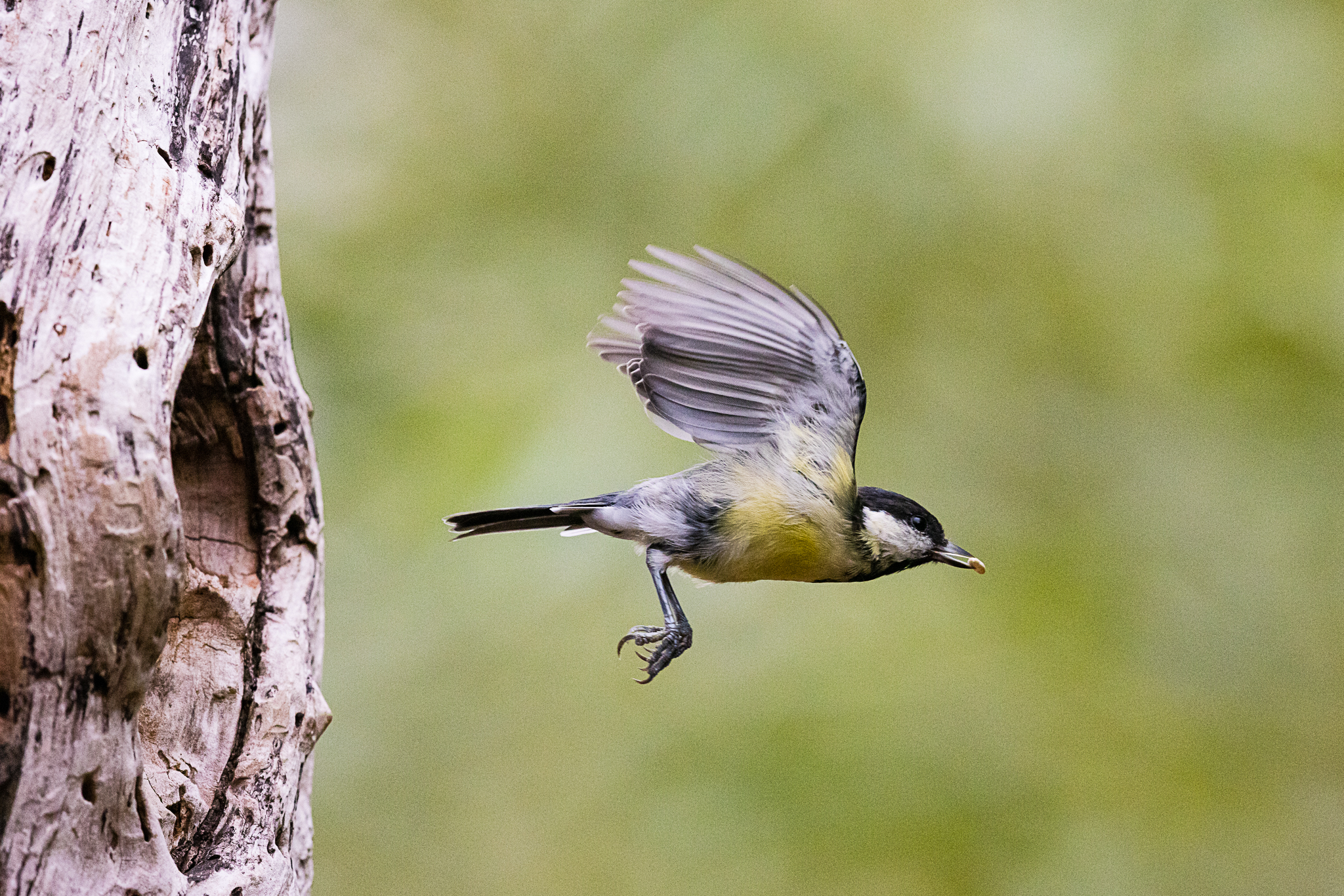
Aside from that new Canon-made sensor and those autofocus powers, the fourth big new feature announced for the EOS R3 is that it'll be able to shoot 30fps with full autofocus tracking and auto-exposure when you use the electronic shutter. That's an impressive headline feature that theoretically matches the Sony A1's top shooting speed, but it comes with a lot of caveats.
Firstly, Canon hasn't said whether or not this involves an image crop, or what kind of files will be supported at the top 30fps speeds – on the Sony A1, for example, you can shoot compressed raw and JPEGS, but not uncompressed or lossless raw files. Also, burst shooting speeds are dependent on what lens you're shooting with, so it's not clear which lenses will support 30fps shooting.
That's it so far for official announcements on the EOS R3, but recent rumors have added a couple of other possible specs. Canon Watch has said that it'll be capable of 20fps burst shooting speeds with the mechanical shutter and 8K/30p raw video recording, although it doesn't say whether or not the latter will be internet or via an external recorder.
Canon Rumors has also reported that the EOS R3 will bring a "resolution trick", which is most likely referring to a 'pixel shift' function. This allows cameras to move their sensor in order to capture high-resolution photos that at least quadruple the native resolution of the sensor, and it's a feature that's been strangely lacking on cameras like the Canon EOS R5.
Still, whatever that new "resolution trick" is, one final thing we can be sure of is that the EOS R3 will have bomb-proof build quality...
Canon EOS R3 design and build
- Same durability and weather-resistance as EOS-1 series
- Integrated grip for pro-level handling and battery life
- No news yet on the R3's electronic viewfinder
So far, Canon has only released two front-on photos of the EOS R3, but there are a couple of things we know about the camera's design.
First, Canon is promising that the R3 will have the same level of dust- and water-resistance as its classic EOS-1 series DSLRs. These are renowned for being almost indestructible professional cameras, so that's good news for the R3's durability.
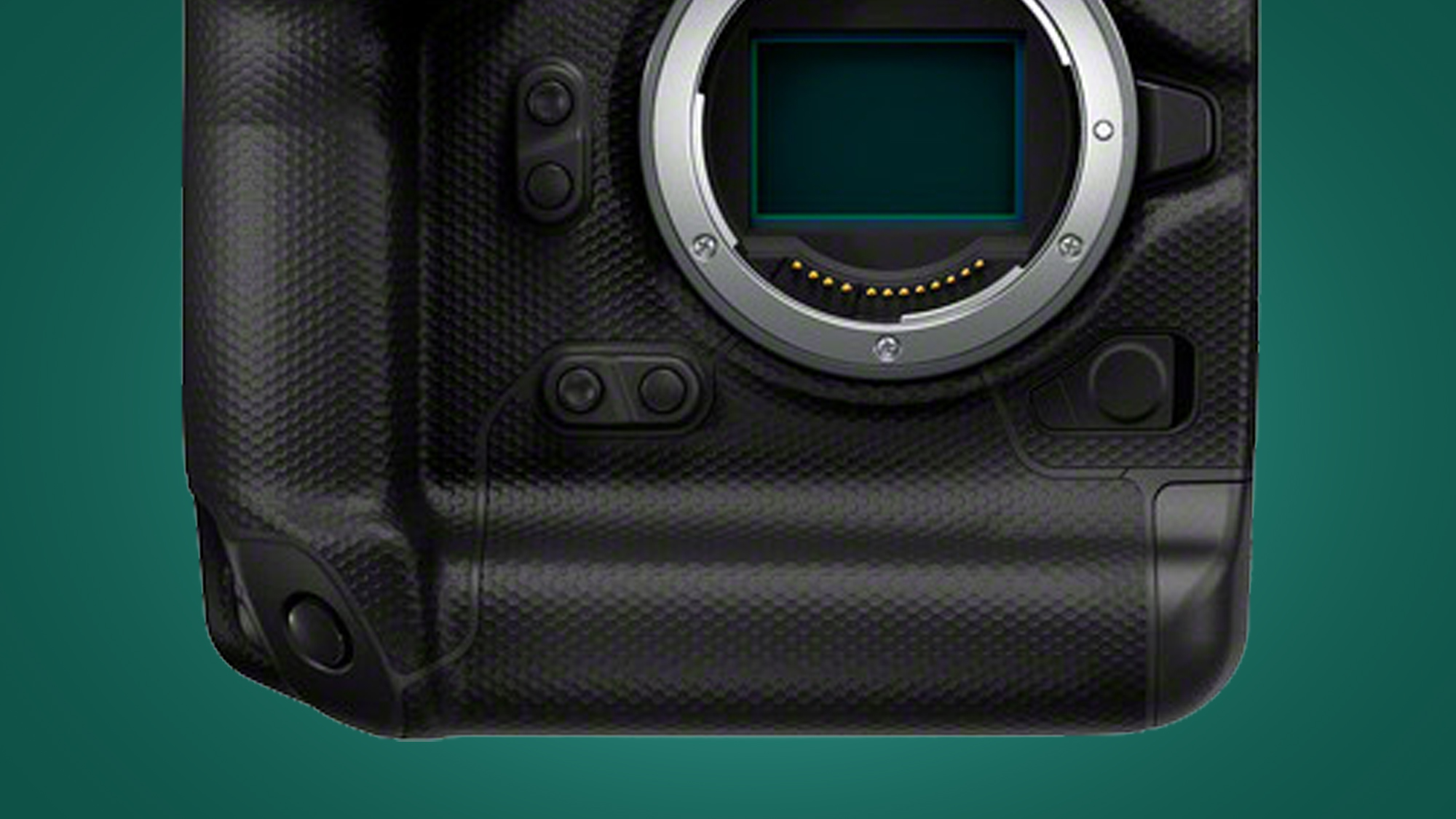
As you can see in the photos, the R3 also has an integrated grip, which isn't just there for comfortable handling – it also houses a big battery that should keep the camera going far longer than most current mirrorless cameras. It might struggle to manage the 1D X Mark III's 2,850 images per charge, but we're expecting a huge improvement on the EOS R5's meagre 320 shots when using the EVF (or 490 shots if you're using the LCD).
As important as battery life for pro sports shooters is the viewfinder, but so far Canon hasn't provided any details about the EOS R3's EVF. We are expecting big things, though, given that Canon touted the "optical viewfinder experience" of the 1D X Mark III as one of the strengths the R3 will inherit from its DSLRs. So expect a viewfinder with a very high resolution and refresh rate, which will be up to the demands of pro sports shooters who can't afford to miss a millisecond of action.
Canon EOS R3 lenses
Of course, for pro photographers the lenses are just as important as the camera body – which is why Canon has also announced two pro telephoto lenses, plus the first true RF macro lens, alongside the Canon EOS R3.
You can read more about those in our separate story on the RF 100mm f/2.8L Macro, 400mm f/2.8L IS USM and 600mm f/6L IS USM lenses. But the short summary is that the new 'white lens' telephotos are effectively mirrorless ports of Canon's EF equivalents, only this time with slightly improved autofocus performance and potentially better image stabilization.
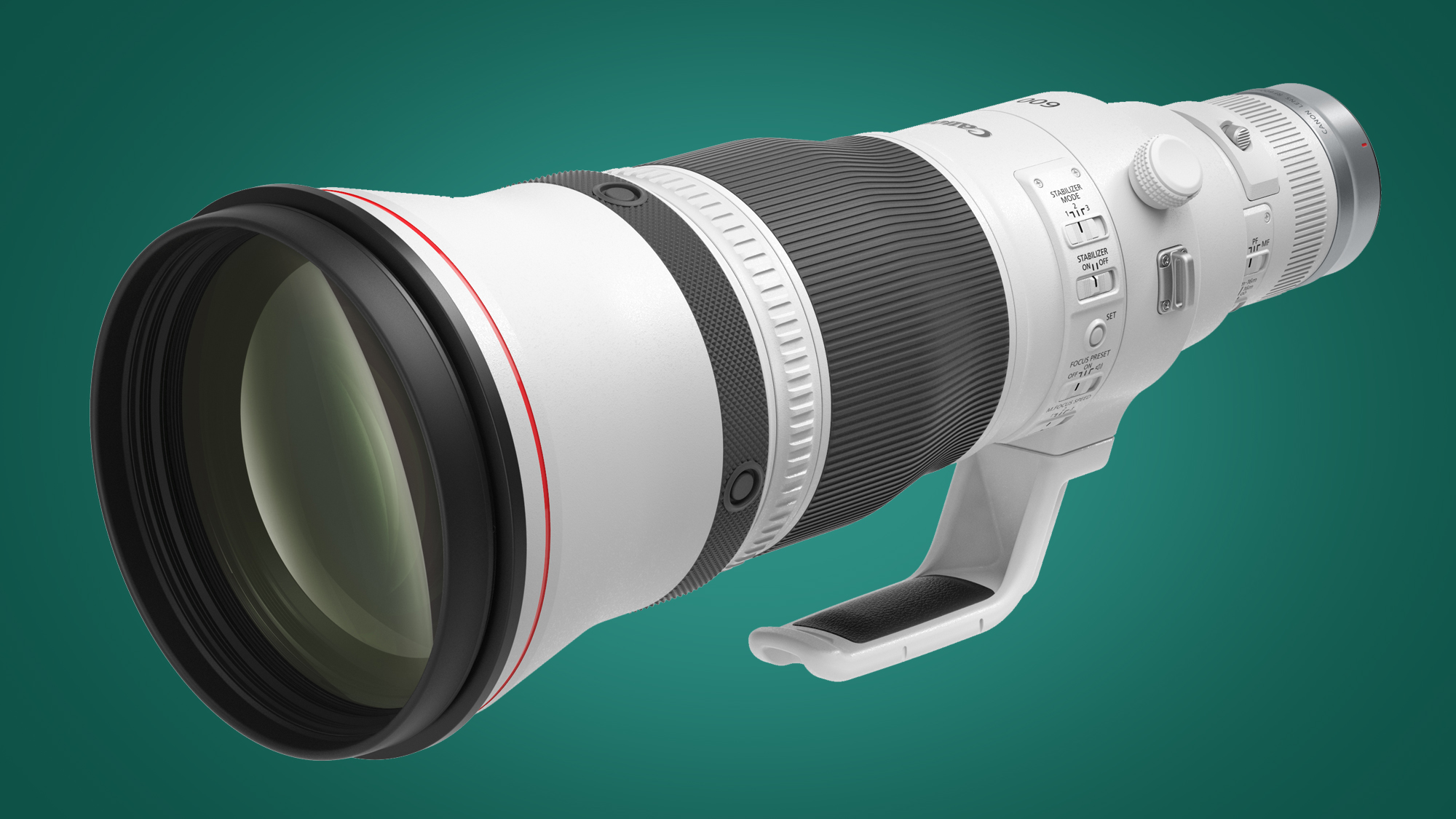
For those who can't quite manage their eye-watering price tags, though, the RF 100mm f/2.8L looks the more intriguing lens. It brings a minimum focusing distance of only 8.6cm and comes with a new Spherical Aberration (SA) control ring for softening different parts of your image and creative effects.
While the RF 400mm f/2.8L IS USM and 600mm f/6L IS USM will undoubtedly be perfect partners for the new Canon EOS R3, that new RF 100mm f/2.8L looks like it'd be at home with all members of the EOS R family, including the Canon EOS R5 and Canon EOS R6.
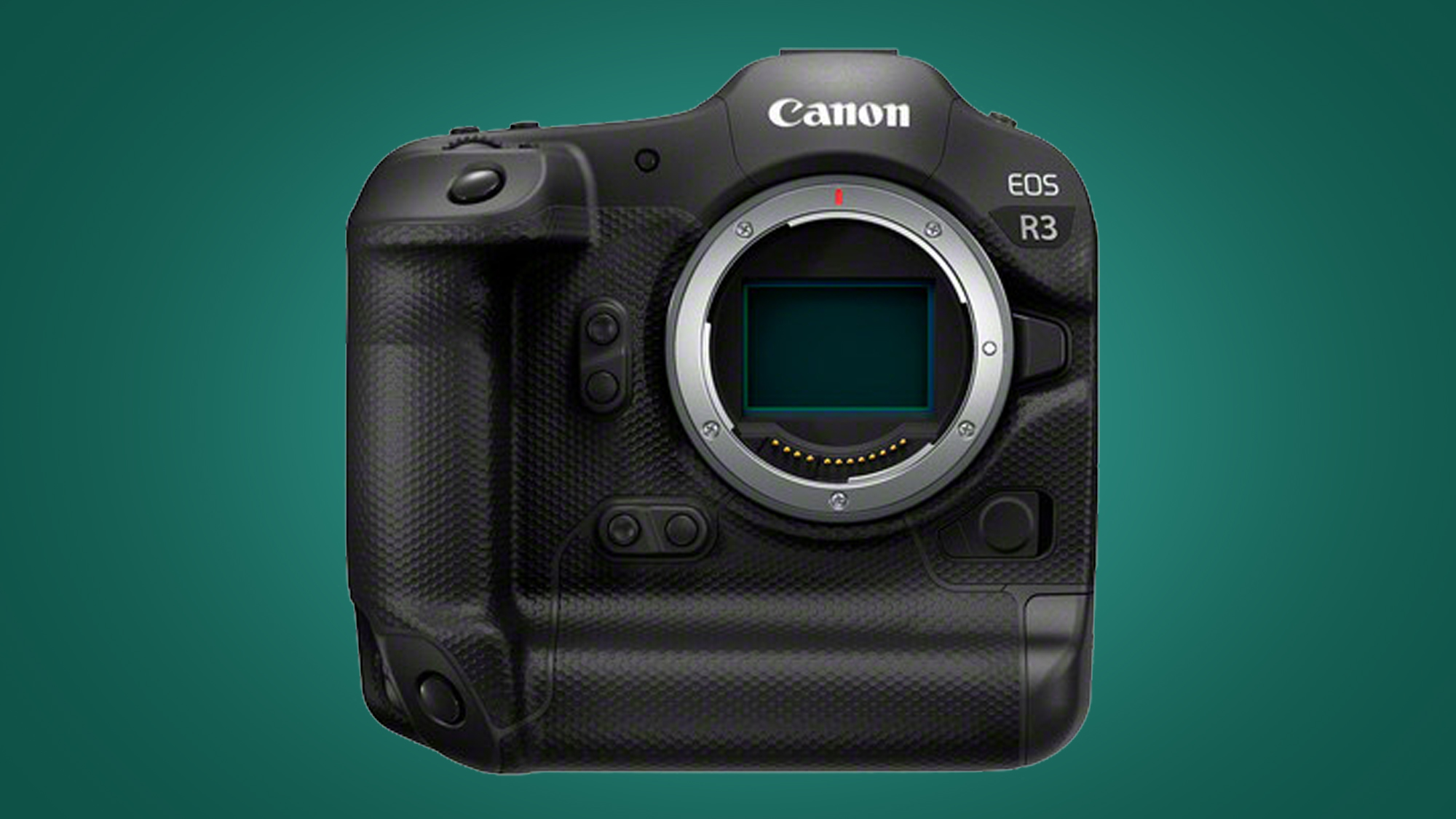
Canon EOS R3 early thoughts
The Canon EOS R3 is something of a surprise announcement. Recently, the rumor mill has mainly been talking up the possibility of a Canon EOS R1 flagship – so does the arrival of the R3 mean we now won't see an R1?
Not necessarily. From the specs we've seen so far, it feels like the Canon EOS R3 is more like a supercharged, pro-friendly version of the Canon EOS R6, rather than the high-megapixel, 8K-shooting flagship we're expecting the rumored R1 to be.
In this sense, the Canon EOS R3 is likely to be more of a rival to the Nikon Z9 than the Sony A1. And like Nikon's camera, it's something of a watershed moment that will see professional sports photographers move from the DSLR format to mirrorless.
We're still expecting to see Canon reveal its answer to the Sony A1 at a later date, but for now the Canon EOS R3 is an exciting glimpse of where its high-speed sports cameras are headed.
- Canon EOS R1 release date, price, rumors and leaks
- Nikon Z9 release date, price, specs and rumors
- These are the best cameras in the world right now
from TechRadar - All the latest technology news https://ift.tt/3sgzOlU